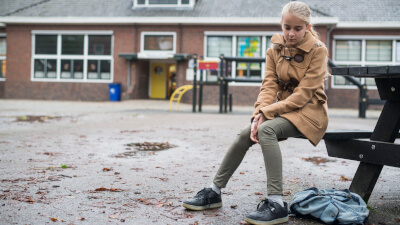Safeguarding e-Bulletin – 18th March 2021

Welcome to the second SSS Learning newsletter of 2021. With schools welcoming back pupils during this initial phase of easing Covid-19 lockdown arrangements, there can be no doubt that the education sector faces new challenges in supporting both staff and pupils whilst the Covid-19 pandemic continues. I would like to reassure you all that we remain aware of the pressures faced by all educational settings and that we will continue to do our utmost to provide support through our safeguarding service.
I would also like to thank you all for the hugely positive feedback received for our resource Child Mental Health & Wellbeing- 10 Top Tips for Parents which I know many of you shared via your websites, Twitter and Facebook feeds. Following on from this, I am delighted to announce that we have produced an additional resource 'Your Mental Health & Wellbeing- 10 Top Tips for parents' which I hope will prove as valuable. This resource focuses on the simple practical ways parents can look after their mental health and promote their general wellbeing. We'll let you know as soon as it is released.
In support of Children's Mental Health Awareness week in February we also released a series of videos, co-hosted by our experts Dr Gwyndaf Williams and Children's Recovery Unit Senior Leader Delyth Hughes, with practical tips on how to support children with known mental health needs / disorders in educational settings. All the videos, detailed below, are available to watch via our YouTube page:
- Attachment disorders
- Habit disorders
- Psychotic disorders
- Post-traumatic stress disorder
- Obsessive compulsive disorder
- Pervasive development disorders
- Bipolar disorder
- Oppositional defiance disorder
- Eating disorders
- Conduct disorder
- Attention deficit hyperactivity disorder
In our January newsletter we announced that, in response to your suggestion, we would enable access to courses to be optionally controlled by role as well as by individual user to simplify admin tasks and reduce staff confusion. I can confirm this work has been implemented and that this feature is now live within the system.
We are dedicated to providing the safeguarding service you need so, as ever, please keep those suggestions for system enhancement and new course topics coming.
Best wishes
Sam
Sam PrestonSafeguarding Director
In the news:
Cross party examination of children's mental health
Following on from February's national children's mental health awareness week, a cross-party examination of children's mental health services has been launched. This follows raised concerns over the impact of school closures and youth unemployment rates, which are thought to be contributing to increasing levels of isolation, anxiety and depression among young people.
CAMHS failure to adapt support services during lockdown
Research carried out by BFB labs, creators of digital early intervention programmes, has found that four in ten Child and Adolescent Mental Health Services (CAMHS) failed to implement any new online support for children and young people during the Covid-19 pandemic. Despite 45% of CAMHS recognising that online programmes have a role to play in early intervention support, barriers such as limited knowledge of available digital interventions, cost and a lack of clinical evidence on effectiveness have been cited as preventing development of such support.
Research conducted by the Centre for Mental Health forecasts that 1.5m young people in England will need help with psychological difficulties as a direct result of the COVID-19 crisis. The research also states that three-quarters of young people experiencing a mental health problem are unable to access any treatment.
A survey of 135 NHS clinical commissioning groups has also found that 64% of CAMHS are currently signposting children and young people to online resources rather than proven digital interventions such as talking therapies.
BFB labs Chief Executive, Manjul Rathee, warned of a 'postcode lottery' in accessing online support services stating:
'Early intervention really matters in young people's mental health - untreated mental health issues can lead to life-long consequences. We have a window now to prepare for what lies ahead. That means putting in place digital interventions that can scale access to evidence-based support to enable those young people who need support to receive care quickly.'
Reality star appointed as youth mental health ambassador
A&E doctor Alex George has been appointed as youth mental health ambassador by Prime Minister Boris Johnson. George, who rose to fame on reality TV series Love Island, will advise HM Government and is tasked with raising the profile of mental health education and wellbeing in schools. Dr George's clinical expertise, personal experience and social media presence will help shape policy on improving support for young people in schools, colleges and universities.
George, a campaigner for children's mental health after losing his brother to suicide last year, will also sit on the new Mental Health in Education Action Group, chaired by children's minister Vicky Ford and universities minister Michelle Donelan. The group is tasked to look best ways to support children and young people's wellbeing as they return to school and university following the relaxation of the restrictions due to Covid-19.
Call for secondary staff to support Mind inquiry
Mind, the registered charity dedicated to promoting and supporting better mental health, want to hear from staff working in secondary schools in England as part of Educating Mental Health: Mind's inquiry into mental health in schools.
The survey, which focuses on mental health in secondary schools, is open for staff to share their experience of working with children and young people from year 7 to 11, plus sixth form.
Covid-19 & the impact on autistic children
A survey conducted by the charity Ambitious about Autism has revealed that the mental health and emotional wellbeing of autistic children has worsened amid the current Covid-19 pandemic.
The survey involving over 2,000 autistic children and their parents showed that three quarters of participants feel more anxious since the health crisis began. Over half (56%) of survey participants reported feeling stressed, 54% said they felt overwhelmed during the pandemic and 75% felt they will need ongoing support for their mental health and wellbeing.
Disruption to the routines, social distancing measures and cancelled medical services were all cited in the survey findings as main causes of increased anxiety and additional stress. For some autistic young people this has also led to additional mental health issues such as eating disorders, obsessive compulsive disorders and agoraphobia.
Prior to the pandemic, 58% of young people with autism were receiving specialist support and a fifth were supported with their mental health. However, 80% reported this support stopped or was reduced during the first lockdown, from March to June 2020. The charity has warned that this lack of access to support may have devastating consequences.
Chief executive Jolanta Lassota described the impact of the pandemic on the mental health and wellbeing of autistic children as 'disastrous'. Lassota stated that 'The setbacks faced by autistic young people, already among the most vulnerable and disadvantaged in our society, will have repercussions for years to come, affecting their health, wellbeing, happiness and ambitions for the future' and called for decision-makers to take action to protect them and ensure their needs are at the heart of the recovery.
Children with Special Educational Needs: responding to unprecedented challenges
The National SENCO Workforce Survey 2020: Supporting children and young people with special educational needs and their families during the coronavirus (COVID-19) pandemic has found that almost three quarters of SENCOs felt their schools had experienced challenges in providing support to children with education, health and care plans (EHCP) during lockdown. Nearly two-thirds of SENCOs said they would have welcomed more support and guidance from central government which has led to recommendations around the provision of national exemplars and guidance in responding to such unprecedented events in the future.
Additional key recommendations of the survey conducted by Bath Spa University in collaboration with nasen also include:
Access to and accessibility of virtual learning: Access to IT for all children needs to be considered as a critical issue and schools should prioritise digital learning to support young people in their future learning. Teachers need to be provided with additional support to help them differentiate for pupils with SEND;
Responding to unprecedented challenges: Guidance around virtual learning and learning from the positive experiences that SENCOs reported when supported by MATs, including the development of networks and sharing of resources; Working with families: Senior leaders to consider how the benefits reported from a closer relationship with families can continue to be realised in the longer term.
Protect duty
HM Government are seeking views, through a public consultation, on how the proposed Protect Duty can make the public safer at publicly accessible locations. The proposed duty is part of the Government's approach to improving protective security and preparedness at publicly accessible locations.
The consultation considers how proportionate security measures can be developed to improve public security and considers how those responsible for publicly accessible locations are ready and prepared to take appropriate action, were a terrorist attack to happen.
The consultation is open to the public, targeted at organisations and individuals who operate at publicly accessible locations. A publicly accessible location is defined as any place to which the public or any section of the public has access, on payment or otherwise, as of right or by virtue of express or implied permission.
Publicly accessible locations comprise of a diverse range of sites which includes schools and universities. The consultation will consider how legislation might be used to enhance the protection of publicly accessible locations across the UK from terrorist attacks and ensure organisational preparedness.
The consultation closes at 11:45am, 2nd July 2021.
Helpline to help teachers support children affected by domestic abuse
The Operation Encompass Teachers helpline (0204 513 9990) has extended its operating hours to Mon-Fri from 8am to 1pm throughout term time.
The helpline, funded by the Home Office and the Department for Education, is available for staff in all educational settings to speak in confidence with an educational psychologist and gain advice in how best to support children experiencing domestic abuse. All clinicians providing advice have received specialist training in supporting children that have experienced trauma and working with the adults around them to facilitate support across education, family and community systems.
Further resources are available from the Operation Encompass website, which includes further information about the helpline further information about the Helpline and a handbook for schools.
Fears re: rise in online grooming
The UK's child abuse image database has 17m unique images on it, increasing by 500,000 images every two months. Currently, the National Crime Agency (NCA) carries out vital work to prevent children being revictimised by paedophiles who repeatedly share such images.
By using photo hashes, digital files that match known images of child abuse are used to scan sites such as Facebook, Google or the game platform Roblox. However, there are fears that Facebook's plans to encrypt its Messenger service, to bring it in line with WhatsApp and Instagram which it also owns, will negatively affect this key area of safeguarding. Facebook have confirmed that such encryption will mean the scanning technologies currently used will not be able to identify such child abuse material.
NCA Child Abuse lead Rob Jones warned that:
'If encryption goes ahead, we stand to lose it all. As companies move to end-to-end encryption there is a real risk that all the leads we talk about, the monitoring of known images that often lead us directly to offenders, will be lost.'
Jones also warned that such encryption may also impact on the ability to combat live streaming abuse, where paedophiles pay to watch children abused in poorer countries. As live streaming is difficult to track in real time, access to messaging services where images will be shared is a key component in identifying live streamed abuse.
Facebook have responded to the NCA criticism, insisting that they will still be tackling abuse on their platforms. They report that WhatsApp bans around 250,000 accounts each month suspected of sharing child exploitative imagery.
Almost half of British police officers have reported a rise in online grooming of children during the coronavirus pandemic. Between April and September last year, 4,700 people, nearly all men, were arrested for online child abuse offences and more than 6,000 children were safeguarded.
A toolkit of lessons for primary school children on sharing pictures, gaming and livestreaming are available to download via Thinkuknow, the national online safety education programme from the NCA. A video for secondary age children exploring reporting online grooming and sexual abuse is also available.
Rise in children killed or seriously injured during lockdown 1
Serious incident notifications reported by Local Authorities to Ofsted show that the number of children killed or seriously injured during the first six months of the coronavirus pandemic increased by more than a quarter on the previous year. (Serious incident notifications involve death or serious harm to a child where abuse or neglect is known or suspected, and also deaths of children in care and children in regulated settings).
Ofsted received 285 serious incident notifications for the period April to September 2020, a 27% increase on the same period for the previous year. Statistics also show that:
- 119 related to child deaths, an increase from 89 in the same period of 2019/20;
- more than a third, 35.8%, of incidents relate to a child under one compared with 30.4% in the previous quarter;
- almost two thirds of serious incident notifications in the first half of 2020/21 related to white children;
- of those children involved in serious incidents, 8.4% were subject to a child protection plan, compared with 7.6 % over the same period in the previous year;
- the majority of serious incidents happened while a child was living at home, 188, compared with 163 during the same period in 2019;
- when incidents took place, eighteen children were living with relatives, eight were in semi-independent accommodation, twelve were in short-term foster care, eight in long-term foster care, fifteen in residential care and twelve in hospital. (In four cases it was 'not known' where a child was living at the time and twenty were classed as 'other').
Responding to this data, The Children's Society policy manager, Iryna Pona said:
'The increase in these incidents happened at a time when Covid-19 was having a huge impact on the wellbeing of children and families and disrupted help available to those who needed it most. During the first lockdown many vulnerable children were stuck at home in difficult, sometimes dangerous situations, often isolated from friends and support networks. Sadly, children also continued to be targeted and groomed by people outside their families for sexual and criminal exploitation like county lines drug dealing operations, which can lead to serious violence or death. At the same time, they were often hidden from view of professionals like social workers and teachers who are best placed to spot the signs they may be in danger.'
Pona has called for a 'radical overhaul' of children's social care in the Independent review of children's social care which will focus on the needs, experiences and outcomes of the children supported by social care. The review is being independently led by former schoolteacher and founder of the social work charity Frontline, Josh MacAlister.
Inadequate rating for gender identity development service for children
The UK's main gender identity development service for children has been rated inadequate following inspection by The Care Quality Commission (CQC) in November 2020.
The Tavistock Centre was found to be leaving thousands of vulnerable young people at risk of self-harm as they wait years for their first appointment, resulting in the CQC taking immediate enforcement action against the Tavistock and Portman NHS foundation trust. The service was rated overall as 'inadequate' highlighted overwhelming caseloads, deficient record-keeping and poor leadership as cause for concern.
The commission's report identified that services and waiting times in the Gender Identity Development Services (GIDS) in the trust's London and Leeds clinics 'must improve significantly' and have demanded monthly updates on numbers on waiting lists and actions taken to reduce them. Inspectors found there were more than 4,600 young people on the GIDS waiting list, some waiting over two years for their first appointment. The report warned that the size of the waiting list meant staff were unable to proactively manage the risks to those on it, many of whom were vulnerable and reported self-harming behaviours.
The inspection also revealed that staff were dealing with heavy caseloads, with a third of staff working with over 60 individuals at once. The report concluded that the service was 'not consistently well led', that staff did not always feel respected, supported and valued and that some said they felt unable to raise concerns without fear of retribution.
The service has faced major scrutiny in recent years, with some former staff and campaigners raising concerns about the “over diagnosing” of gender dysphoria, the consequences of early medical interventions and the significant increase in referrals of girls questioning their gender identity.
County lines, grooming & knife crime: a story of choices & consequences
A new educational resource is now available for children, young people, teachers & parents on the topics of county lines, grooming and knife crime. The new resource has been produced by the Office for Humberside Police & Crime Commissioner and award-winning author Christi Gabbitas. The resource focuses on preventing young people getting involved in violent lifestyles.
Useful links:
Guidance- Face coverings: when to wear one, exemptions and how to make your own
SSS Learning Safeguarding Director


